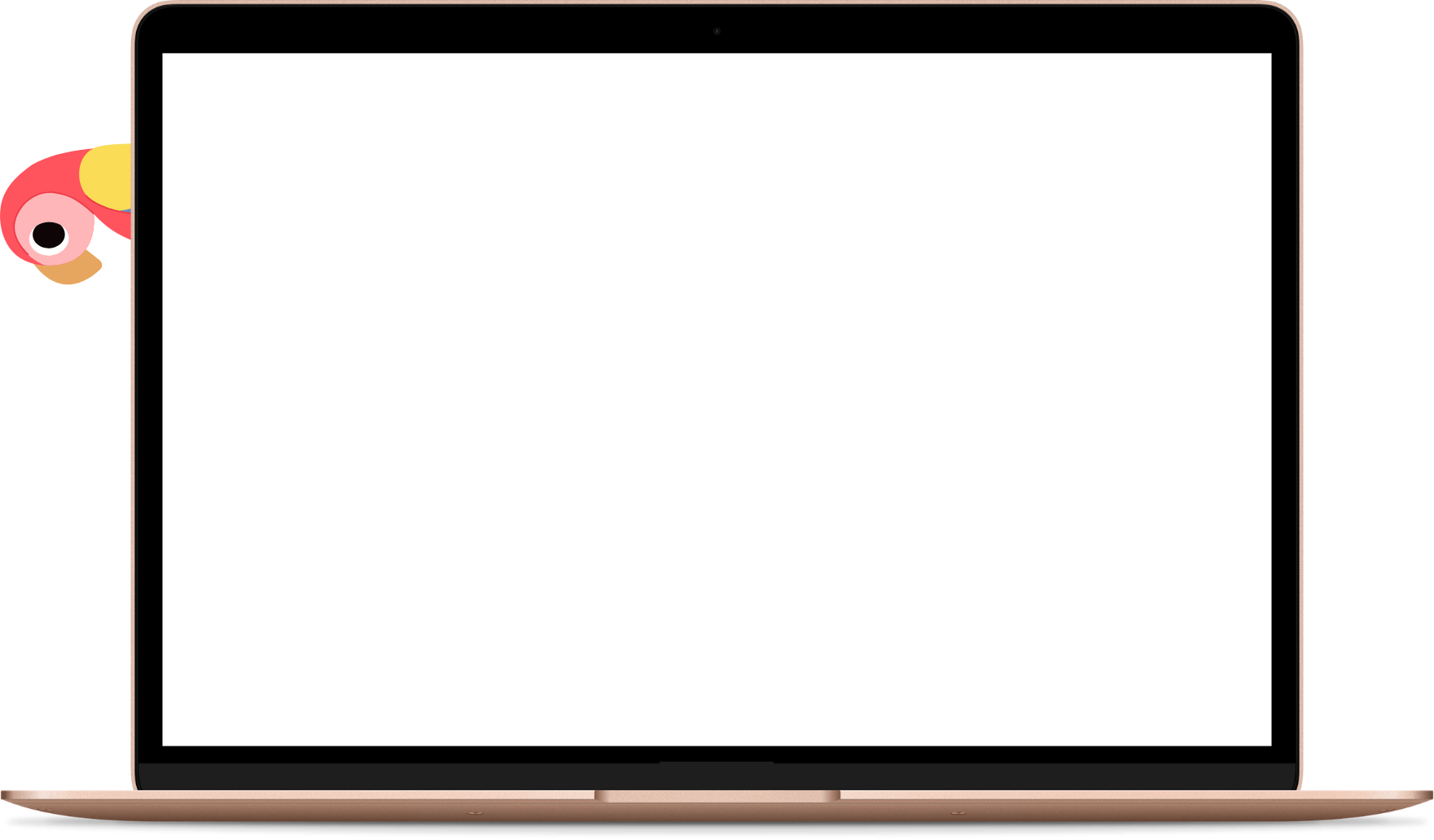Learn a language quickly by practicing speaking with AI


PollyTalks lets you practice speaking a foreign language with an AI. The premise is simple; the fastest way to learn to speak a language is to speak it! By speaking, your vocabulary and understanding of grammar will improve with time.
Before AI, it was difficult to organise practice with native speakers, but now you have a resource which is endlessly patient and helpful.
For each saved conversation, the app generates some personalised feedback to help you improve in the future.
The app also generates a fluency score for each conversation which you can use to track your progress over time. One of the keys to mastering a language is consistency, so you can also create daily reminders and track your usage with the calendar on your profile.
1. Select Start speaking now to get access to 7 free conversations with Polly.
2. Select “Sign Up”. You will need to enter an email address and password, and no payment information is required.
3. You will receive an email to confirm the email address (sorry, but we have to make sure that all emails are real). Select the link to return to the PollyTalks App.
4. Select the language in which you wish to converse from the dropdown.
5. Then select “Start conversation”. Polly will start speaking with a short question (e.g. "Hi, how are you?").
6. Make sure your microphone is enabled on your device by selecting “Click/Tap to Enable Microphone”.
7. Select “Press and HOLD to Speak”. When you have finished speaking, release the button. Polly will then reply. Repeat this step to continue the conversation.
8. When you have finished a conversation, select “Save Conversation & View Fluency Score”. See FAQs below for an explanation of Fluency Score and profile.
9. We highly recommend that you use a spaced repetition flashcard tool like Anki (see FAQ on Anki below) to help you retain vocabulary. This will complement and accelerate your learning with PollyTalks.
10. To have more than 7 free conversations, you will have to become a premium member for $6.50 per month. This gives you unlimited conversations!
There is now a wealth of literature and anecdotal evidence which shows that the fastest way to learn a language is through oral participation [1][2]. There are two reasons that this has been difficult in the past.
The first and most obvious is that if, for example, you live in the US and are learning French, it’s unlikely that you have a French-speaking person who will be willing to practice with you whenever you want.
The second problem is the reticence to speak even when you do. Speaking a new language with a local is uncomfortable for most of us, partly due to our deep-rooted desire not to look foolish in front of others.
Being able to speak with an AI in the desired language allows us to fail regularly without embarrassing ourselves, and it’s a resource that is ever present and endlessly patient while we learn.
References:
[1] Wicaksana, B., & Fitirani, E. (2020). The effectiveness of role-play towards vocational school students' speaking skill. Journal of Journey, 3, 74-80.
[2] Neupane, B. (2019). Effectiveness of role play in improving speaking skill. Journal of NELTA Gandaki.
Yes! We’ve built in features to help you get started, even as a complete beginner in the target language. You can now click on any word in a conversation to see a translation in your native language. You can also use the “Stuck, get a hint” button which will give you an AI-generated suggestion of what to say next.
When you save a conversation, Polly will give you some qualitative feedback and a fluency score. You can view the fluency score for each conversation on your profile page and can see your improvement over time.
Yes, but the good news is that you probably need to learn less than you think. If you take the English language as an example, there are over 170,000 words in the Oxford dictionary (and 47,000 that are classed as ‘obsolete’). However, you can understand and speak 90% of everyday conversational English with only 3,000 words.
One mistake that we commonly make when learning vocabulary is to learn word-by-word (e.g. ‘aller’ is ‘to go’ in French). A more efficient way to learn and retain vocabulary is to learn using phrases [3]. We’re better at memorizing words in context, than on their own. As such, we need to learn phrases that we expect people to say to us, and we need to learn phrases that we can use in conversation. Over time, you’ll find that you understand individual words as a byproduct, and, more importantly, that you are able to use them in the correct sentence structure in the desired language.
The best way to memorize anything is with spaced repetition [4]. Academic literature has shown that, once learnt, we tend to forget things fairly quickly unless it is reinforced. Spaced repetition tests you on the vocabulary just before you forget it fully, which then allows you to remember it for longer. The best open-source spaced repetition software is Anki, which is available for download on Mobile devices or for use in the browser (Anki Web).
References:
[3] Nation, I. S. P. (2013). Learning Vocabulary in Another Language. Cambridge University Press.
[4] Pimsleur, P. (1967). A memory schedule. Modern Language Journal, 51(2), 73-75.
This will come as good news to most. You do not need to study grammar to learn to speak a foreign language [5][6]. When a child is learning to speak their native language, we don’t teach them about past participles and auxiliary verbs. They understand these concepts intuitively from listening and speaking. The same is true for acquiring a second language. If you learn vocabulary and practice speaking the language, over time, you will gain an understanding of correct grammar.
References:
Krashen, S. D. (1981). Second Language Acquisition and Second Language Learning. Pergamon Press.
Lightbown, P. M., & Spada, N. (2013). How Languages are Learned. Oxford University Press.
The fluency score is calculated using the rate at which you speak and the number of unique words you use in that conversation. We haven't published the full equation because we don't want you to game it. The fluency is a great objective metric to see how much progress you're making against your past performances.
1. Download the Anki mobile app from your respective app store or visit AnkiWeb.net to use the browser version.
2. Create an account by providing the requested information. This will allow your decks to be saved and accessed across different devices.
3. Once you're logged in, you can create a new deck. A deck is like a set of flashcards for a specific topic. Click "Create Deck" and give it a relevant name (e.g., "French Vocabulary").
4. In your new deck, click "Add" to start creating flashcards. You will see two fields: "Front" and "Back". In the "Front" field, write the phrase (you will be shown this and will need to remember the translation of this). In the "Back" field, write the translation. Click "Add" when you're finished with a card.
5. Now that you've created your cards, it's time to study. Go to your deck and click "Study Now". The front of a card will be shown first. Try to recall the translation before clicking "Show Answer". Based on how well you recalled the answer, select "Again", "Good", or "Easy". This will determine when the card is shown to you again. Repeat this process to keep your language vocabulary up-to-date.
PollyTalks currently lets you practice speaking in 36 different languages:
Feel free to email Chris at chris@pollytalks.com with any questions, feedback or suggestions.
Feel free to email Chris if you have any other questions.

I made PollyTalks after many years of trying to learn languages. I studied French for 5 years at school yet - when I went to France - I couldn't speak to anyone. I assumed that I was just bad at languages.
Later in life, I travelled with some French friends. I spoke to them in broken French at first but, by the end, I was able to chat to them fairly comfortably (and was even able to joke around). I realized then that there's no substitute for speaking to natives regularly.
The problem is that we can't go off travelling whenever we want to learn a new language. It can also be expensive and time-consuming to organize calls with native speakers online or to hire a private tutor.
PollyTalks allows you to speak any of 36 languages with a conversation partner who is endlessly patient and helpful. Our ultimate goal is to use AI to make what is currently considered world-class education accessible to everyone.
I would love to hear from you if you have any questions, issues or feedback. Feel free to email chris@pollytalks.com. I reply to every email personally.